- Home
- Anne Spackman
The Book of Bird and Fairy Stories
The Book of Bird and Fairy Stories Read online
The Book of Bird and Fairy Stories
By Anne Spackman
Copyright 2012 by Anne Spackman
Cover art by Elena Kukanova
https://elenakukanova.com/
Table of Contents:
A Canary in a Golden Cage
The Wild Swans, a retelling of Hans Christian Andersen
The Elf Knight
The Stork’s Nest
The Fairy Ring
The Knight and the Sparrow-hawk
Heron Harbor and the Moon Fairy
The Tale of the Sweet Pea Fairy
The Sandpiper
The Lorelei
The Wood Fairy and the Elf Owl
The Kindness of the Imps
The Mist Fairy and the Nightingale
A Canary in a Golden Cage
Once upon a time, in a small town in Maine by the sea-side, lived a kind-hearted little girl called Catherine who wanted nothing more than a golden canary to keep as a pet.
“Mother, I love birds so much, may I keep a canary bird for my very own?” she asked her mother one morning when the weather was warm, and children devote thoughts to running and playing games out of doors. Catherine had just been outside at play with her friends, where they had seen a few wild birds, sparrows, tits, and jays, hopping from tree to tree. At that very moment, Catherine just knew she must have a little bird of her very own to keep as a pet.
“I don’t know,” said Catherine’s mother. “Keeping a canary is a big responsibility. They require a lot of care and feeding.”
“I’ll take care of the bird, oh I will!” promised Catherine.
“Well then, we can look for one tomorrow, I suppose,” said Catherine’s mother.
The next day mother and daughter visited the pet store, where all kinds of animals were being sold. There were love birds and cockatoos, lizards, gerbils, kittens, dogs, and all kinds of fish in aquariums.
“Look mother!” laughed Catherine, pointing to a rabbit’s cage. “Motor nose!” she exclaimed, watching as the bunny’s nose twitched and twitched, and the rabbit hopped around to escape all the fuss.
“Here’s a funny little character,” said Catherine’s mother, pointing at a hamster running around a wheel in its cage.
“Where are the canaries, do you suppose?” asked Catherine.
“They must be around here somewhere,” said Catherine’s mother. “Let’s just ask the shop-keeper.” A minute later, Catherine and her mother encountered the young man who ran the shop.
“Do you have any canaries?” asked Catherine’s mother.
“Why, yes, there are a few just around the back, by the love birds.”
“Thank you,” said Catherine, being polite.
“You’re very welcome, my young lady,” said the young man. Catherine and her mother went down an aisle with blue fish and sea horses, and finally came to the back of the store where they heard the noise of many birds, some even imitating words, like the parrot they passed on his display pedestal.
“There they are,” cried Catherine. Sure enough, as the man had said, there were cages of canaries in between the love birds and parakeets.
“May we have one of the canaries, please,” Catherine’s mother asked one of the workers in the back.
“Sure thing, miss,” said the shop employee. “I’ll get you one.”
“I’ll take that one,” Catherine said, pointing to a very pretty yellow bird. The shop employee opened the cage, and pulled out the lovely yellow bird.
“Here you are, young lady,” he said, after putting the canary into a transfer cage. “Be very careful with the bird, since they don’t like being moved around. Here’s how you hold her,” he said, and pulled the canary out of the cage. “Her wings haven’t been clipped, so you be careful she doesn’t fly away. She’ll fly away if you aren’t careful to keep her in her cage.”
“Thank you,” said Catherine. “I think I’ll name her Angel,” Catherine and her mother were careful all the way home not to frighten the poor little bird Angel, or to let her out of her small cage. They had bought her a bigger cage to hang from the ceiling, where the bird would live. That afternoon, Catherine’s father installed the bird cage, and the canary was allowed to sit on a steel rod that looked like a tree branch in the middle of the cage. The canary began to sing after a short while, a little song that pleased Catherine very much.
“Angel likes her new cage,” said Catherine.
“She sure does sing sweetly,” said Catherine’s father. Days and weeks passed, and Catherine took care to feed her Angel her daily seeds, but as time passed, the bird’s cage got very dirty. Catherine forgot to clean away the seed husks, and the cage overflowed with bird droppings. Catherine didn’t want to take care of the bird as much as she had thought she would. But, she still loved Angel, and loved talking to her as though she were a person. Catherine looked forward to seeing her bird every day. However, Catherine was a very young girl, and like many young girls, her attention was soon occupied by her friends. Catherine spent many long summer days out of doors, playing with her friends, climbing rocks by the sea coast, and neglecting Angel, whose cage was dirty. Catherine even forgot to let Angel out of her cage to fly about the room.
One evening, Catherine’s father said, “I think Angel has lost her song.”
“Oh no!” cried Catherine, realizing that she had forgotten about her little bird friend.
“Yes, I haven’t heard her singing as usual. And, she seems as though she might have gotten sick,” noted Catherine’s father. “I hope you have been taking proper care of her.” Catherine felt suddenly very guilty. She hadn’t taken proper care of her little bird.
“Dad, I’m sorry. I’ll take care of Angel better from now on, I promise,” she said, and she meant it. For she felt very much love for her little Angel bird. That night, Catherine checked Angel’s cage. Indeed, the bird seemed to have gotten sick and weak, and didn’t even so much as peep as Catherine took her from her cage.
“Oh Angel, I’m so sorry, will you please forgive me?” asked Catherine. “Here are some fresh seeds, and I’ll just clean out your cage,” she said, putting Angel back in her cage, and freshening it up inside.
But, as the days passed, little Angel didn’t seem to improve in spirits. She seldom sang as she once had. Catherine felt so dreadful that nothing she did improved Angel’s condition. Finally, one day, Catherine took Angel and went to the front door. She had seen the wild sparrows and chickadees outside, living in the ash trees. She loved her little bird so much, that she decided suddenly to let Angel fly free. Perhaps she should not have done it, but Catherine wanted so very much to see her little bird happier that she opened the door and let go of Angel. At first, the little bird just stayed in Catherine’s hand. Then, with a great flutter, she swept up and away towards the grey ash tree.
Catherine was a very kind-hearted girl, and cried as she watched her little bird fly away. She wasn’t certain how she would explain what had happened to her parents, but she was happy that Angel was free. As the days passed, Catherine saw Angel on occasion, pecking outside in the yard with the other sparrows and young birds there. And in her heart she was glad to hear the canary’s song once more.
The Wild Swans, a retelling of the Hans Christian Andersen
A long time ago in Europe, in a land to the South, the King of the country had eleven sons and one daughter called Eliza, who was as lovely and graceful as a gazelle and as tender as a dove. They were good and happy children, until one day their wicked step-mother, who was also a witch, sent Eliza away into the cold birch woods, and turned the eleven princes into wild swans with her magic.
“Go and do not return,” said the wicked
Queen with a sharp laugh.
Then the eleven swans flew away to the neighboring dark forest where Eliza was gathering berries.
Eliza came home and the Queen, who hated how beautiful she was, created a bath with three frogs in it. She whispered to the ugly frogs, “make her stupid, ugly, and evil, that her father may not know her.” She then called Eliza to her bath.
Eliza came and got undressed to bathe. And, as she stepped into the water, the frogs hopped onto her. But, as she arose from the water, three red poppies appeared to float on the water. The Queen’s frogs had been changed to flowers by Eliza’s good heart, which could not be turned evil.
When the evil Queen saw this, she attacked Eliza and messed up Eliza’s hair. She quickly rubbed dirt on Eliza’s face, so that the King, when he saw her, declared that that was not his daughter Eliza, who would not allow herself to become so filthy. Poor Eliza cried, for herself, and for her brothers, who had disappeared. She knew that her father must have fallen under the wicked queen’s spells.
Eliza left the palace and walked away to the forest, where she sought to hear news of her brothers, or to find them herself. At night she dreamed of her brothers, and awoke with tears on her lovely face that washed away the dirt the wicked Queen had rubbed on her face. She soon found a river where she could wash off the rest of the dirt and clean her hair and bathe. She ate wild berries and met a wandering country woman, who, out of pity for the poor girl, offered her a small lunch of

 The Last Immortal : Book One of Seeds of a Fallen Empire
The Last Immortal : Book One of Seeds of a Fallen Empire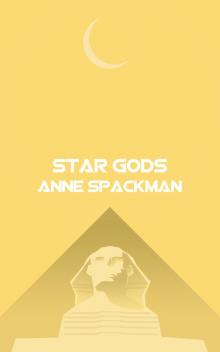 Star Gods: Book Four of Seeds of a Fallen Empire
Star Gods: Book Four of Seeds of a Fallen Empire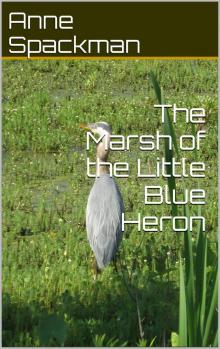 The Marsh of the Little Blue Heron
The Marsh of the Little Blue Heron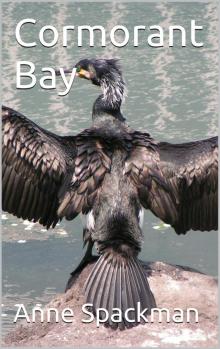 Cormorant Bay
Cormorant Bay Across the Stars: Book Three of Seeds of a Fallen Empire
Across the Stars: Book Three of Seeds of a Fallen Empire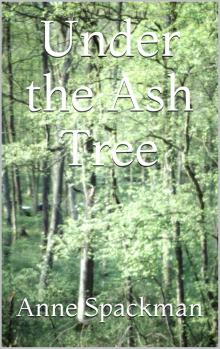 Under the Ash Tree
Under the Ash Tree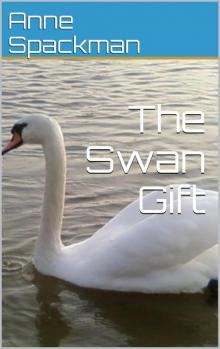 The Swan Gift
The Swan Gift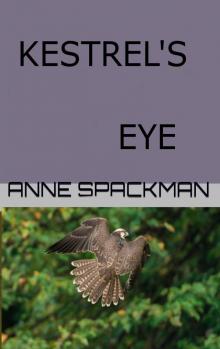 Kestrel's Eye
Kestrel's Eye Caesar and Cleopatra: A Tale of Julius Caesar
Caesar and Cleopatra: A Tale of Julius Caesar The Road to Skye
The Road to Skye Juniper Hill
Juniper Hill The Empire: Book Six of Seeds of a Fallen Empire
The Empire: Book Six of Seeds of a Fallen Empire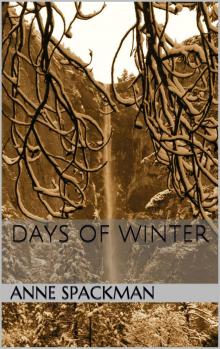 Days of Winter
Days of Winter The Osiris Invasion: Book Two of Seeds of a Fallen Empire
The Osiris Invasion: Book Two of Seeds of a Fallen Empire The Comet Riders: Book Five of Seeds of a Fallen Empire
The Comet Riders: Book Five of Seeds of a Fallen Empire Ocean Spirit : The Story of an Undine
Ocean Spirit : The Story of an Undine What Emma Left Behind
What Emma Left Behind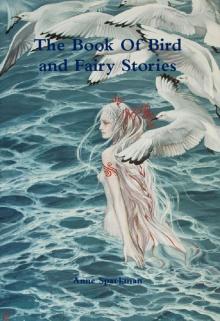 The Book of Bird and Fairy Stories
The Book of Bird and Fairy Stories Blackberry Wine
Blackberry Wine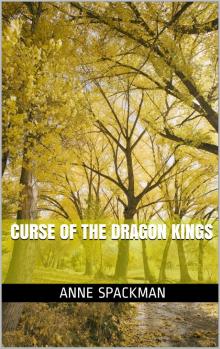 Curse of the Dragon Kings
Curse of the Dragon Kings